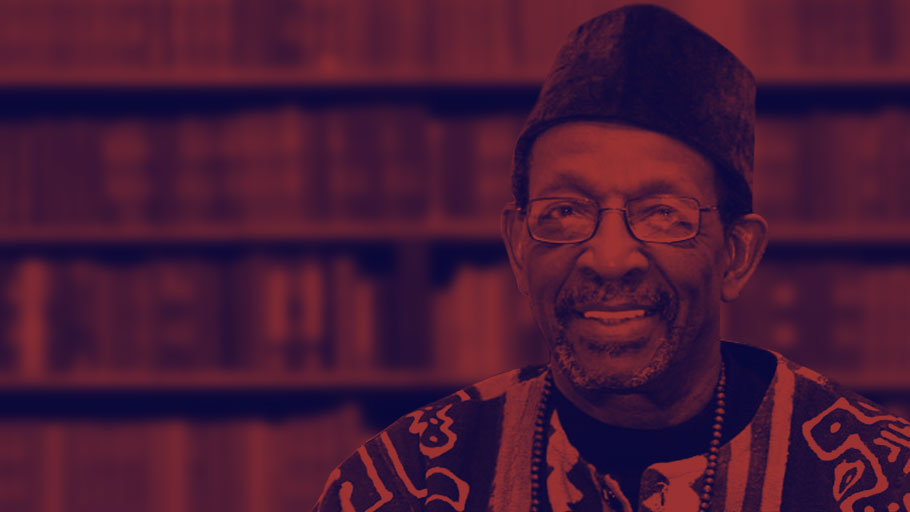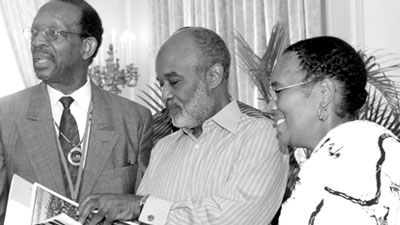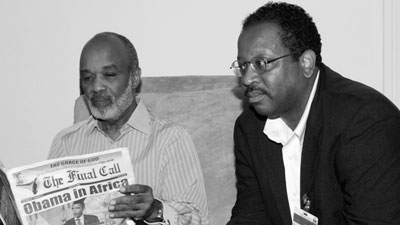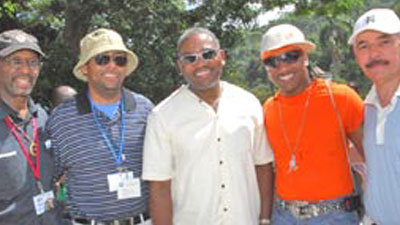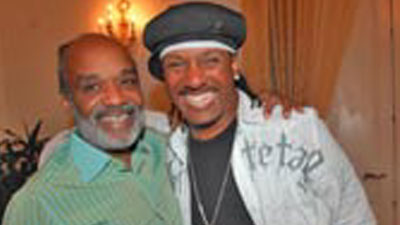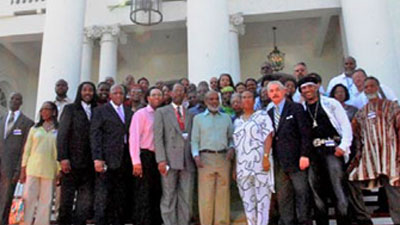An Essay by Dr. Ron Daniels
President of the Institute of the Black World 21st Century and Founder of the Haiti Support Project
Tragedy and triumph is a recurring theme in the history of Haiti, the world’s first Black Republic. It was a horrific tragedy that Africans were enslaved via the Europe slave trade and forcibly relocated to Ayiti to be the forced free labor for what would become the richest colony in the Caribbean. It was one of the greatest triumphs in the history of the world when enslaved Africans rose-up to decimate the armed forces of Napoleon Bonaparte to establish an independent nation, the world’s first Black Republic; the first time in the history of humankind that an enslaved people rebelled against the slave masters to create an independent nation. In so doing, the Haitian freedom fighters shattered the myth of “white supremacy” at a time when Eurocentric theories of racial superiority and inferiority were gaining currency. The Haitian Revolution was the greatest revolution of all time!
The tragedy is that Haiti has been punished ever since, stigmatized, marginalized, embargoed, invaded and subjected to chronic interference in its affairs by European powers and the United States. But, despite persistent class contradictions and related tensions, the Haitian people, particularly the Haitian masses have been remarkably resilient. Through all the trials and tribulations, the spirit of the Revolution is embedded deep into the soul, consciousness and culture of the Haitian people who yearn for and are willing to fight for democracy and development that is worthy of the dreams of the Freedom Fighters, the sons and daughters, who founded the first Black Republic.
Ultimately, it is this spirit which will triumph as Haiti struggles to overcome the often-turbulent head winds of external and internal contradictions. People of African descent and people of goodwill globally owe an enormous debt to Haiti. Therefore, our mission in the time of trouble is to wrap our supportive arms around the Haitian people, with all the complexities and contradictions, confident that eventually the spirt of the Revolution as manifest in the aspirations of the people will triumph. This background is crucial to the consideration of contemporary crises in Haiti.
The tragic, brutal, mysterious assassination of President Jovenel Moise on July 7th, after months of turmoil and massive, paralyzing protests, stunned the nation. Many observers fear that the vacuum created by his demise will plunge the nation deeper into turmoil. The current crisis occasioned by the assassination of the head of state is exacerbated by the recent death of the Chief Justice of Haiti’s Supreme Court, whom the Constitution designates to become the interim President under circumstances like the present. Moreover, President Moise was ruling by decree because elections for the Haitian Parliament had not occurred. So, in effect every branch of government has been decapitated, creating a rudderless State. In the void there is a scramble for power between various leaders, parties and factions eager to seize the reins of governance.
Unfortunately, corruption in the political class runs deep in Haitian society. So, the fierce jockeying for power among far too many political leaders is to gain access to the public trough as a source of self-aggrandizement. The long -suffering Haitian people, the masses of the people rightly view this scramble for power with anger, frustration and a sense of betrayal. The defining question is where is the critical mass of leaders, organizations and institutions that will put the interest of the Haitian people and the nation, first? And what is the way forward out of yet another crisis of governance? Anxious to avoid another flood of Haitian refugees knocking at the door for asylum, the U.S., Canada and nations of the Caribbean also have a vital stake in the answer to the question.
Plagued by coup after coup and intervention after intervention for decades after the overthrow of the U.S. backed Duvalier dictatorship, a nascent Haitian democracy has repeatedly faced the challenge of cobbling a way forward under trying circumstances. In my view, Haiti’s young democracy has also suffered from a near-fatal weakness, a western style “winner take all” governmental system and political culture where leaders, parties, factions and constituencies engage in fierce competition, bordering on mortal combat to gain access to the “spoils” of power! This is not true of every leader, party or faction, but “winner take all” is a dominant factor in Haiti’s political culture. This immediately creates the problem of envy, antagonism and resistance by the losers who are locked out of access to the spoils of power! The answer to this cultural predicament would seem obvious, share power, share access to the benefits of governance.
I am convinced that emulating western forms of “democratic” governance characterized by winner take all processes are not suited for most nations in the Pan African world This is particularly relevant to African nations where ethnic rivalries and tensions can be combustible within borders artificially drawn up by European colonialists. The same applies for the nations of the Caribbean, including Haiti, where competition between factions, parties and constituencies can be destructive. My preference is that people of African descent devise democratic systems of governance rooted in the values and principles that foster collaboration, cooperation and collective pursuit of goals for the betterment of society; values and principles deeply rooted in the traditional way of life of African people: Umoja (Unity); Ujima (Collective Work and Responsibility); and,Ujamaa (Cooperative Economics) as celebrated during Kwanzaa.
In my judgement, the second term of President Rene Preval embodied these principles as a central feature of his style of governance. While Preval was not a charismatic leader, his penchant for dialogue and quiet/calm demeanor was effective in dealing with political rivals, contentious personalities, parties and factions. Most important, Preval was honest, a man of integrity who was committed to bringing various leaders, parties, factions and constituencies around the table to share in the process and benefits of governance. By doing so, defacto Preval created a “government of inclusion or national unity.” This lowered the temperature of competition between leaders, parties and factions.
By any reasonable measure, Preval’s tenure was extraordinarily successful. Haiti’s GNP took a major leap forward and the International Monetary Fund and World Bank gave his administration high marks for financial transparency and accountability – translation, corruption and the theft of public/governmental resources by politicians was minimalized. As a result, the climate was conducive for significant foreign investment. I distinctly remember Haitian American business leaders outlining plans for various investments, including resort-style hotels in Jacmel and other sites with the potential to attract tourism. Unfortunately, in one of the most tragic of tragic moments in Haiti’s history, a devastating earthquake obliterated the progress Preval’s administration had achieved.
Preval’s low key style of governance was not equal to the task of rallying a bewildered nation to overcome the horrendous human, social and economic toll of the earthquake. Nonetheless, his style of governance and accomplishments of his administration should be viewed as a model that future governments can emulate to harness the potential of the Haitian people to achieve substantial success.
I recount the formula of success for Preval’s administration because Haiti’s current crisis cries out for a government of national inclusion/unity as the way forward. Indeed , in January of 2017, in the midst of another moment of crisis, I penned an Essay entitled – Toward a Government of National Inclusion/Unity: Preval Showed the Way. Ironically, it was written at the conclusion of a crisis which was ostensibly resolved with the election of the young, inexperienced, “Banana Man” Jovenel Moise to the office of President of Haiti. In my essay I tried to offer the new President some advice as follows:
“If the President-Elect has the vision and courage to pursue this path, he will be following in the footsteps of former President Rene Preval who demonstrated the value of creating an inclusive government. While Preval’s non-charismatic temperament was not well suited to lead the country after the disastrous earthquake, it was ideal for the task of combating the negative habits and practices of the zero sum/winner syndrome characteristic of too many of Haiti’s presidential administrations. As President, Preval appointed rivals from different political parties and factions to his cabinet. In effect he shared leadership and the allocation of resources with his opponents.”
I note in the Essay, that President Moise showed some early signs of following in Preval’s footsteps, but apparently the allure of the “winner take all” game was too seductive and lucrative as the new President gradually succumbed to politics and business as usual. The failures of President Moise’s administration notwithstanding, his untimely and shocking murder create the challenge to move from tragedy to triumph. Click here to read the complete Essay with a full rationale for governments of national inclusion/unity.
Photos of HSP Pilgrimage to Citadel and Visit hosted by President Rene Preval
- Dr. Ron Daniels and his wife Mary France-Daniels presented President Préval with a book about South African leader Nelson Mandela.
- President Préval and Final Call Editor Richard B. Muhammad
- The delegation with the Haiti Support Project enjoyed lunch at the Sugarcane Museum in Port Au Prince before a flight to tour historical sites in Cap Hatien, in northern Haiti.
- Ron Daniels, Warren Ballentine, Representative Gregory Meeks, Kangol Kid and George Fraser, Black Business advocate.
- President Préval and rapper Kangol Kid
- A delegation with the Haiti Support Project met with President Rene Préval Oct. 12, 2009
So once again I emphatically propose that the formation of an interim government of national inclusion/unity as the pathway out of the traumatic crisis the Haitian people now face. Moreover, I believe a culture of inclusion/unity must become the centerpiece, the foundation of Haiti’s system of governance in order to fulfill the unfulfilled promise of the Haitian Revolution! Given the turbulence and turmoil of these trying times, this may seem like a tall order, but I believe the Haitian people are up to the task.
I am also encouraged that a chorus of voices inside and outside of Haiti are calling for some form of government of national unity. In a recent interview on MSNBC Professor Robert Fatton, a Haiti expertise from University of Virginia, stressed the need for a government of national unity. The U.S. based Haiti Response Coalition has launched a petition campaign with a series of recommendations for resolving the crisis including the call for a transitional government with this appeal: “Haiti must have a transition process in order to rebuild its democratic institutions, and this process must be inclusive of all sectors of Haiti’s population.”
The Jamaica Gleaner Newspaper made a similar suggestion and recommended former PM, P.J. Patterson as a possible mediator of the crisis. Braxton Brown, PM of Antigua and the current Chairman of CARICOM and other Caribbean leaders have also called for an interim government of national unity and warned against the U.S. sending troops to Haiti. Congressman Gregory Meeks, Member of the Congressional Black Caucus and Chairman of the influential House Foreign Relations Committee, is pushing for a multilateral approach with the U.S., Canada, France, the E.U. and UN following the lead of CARICOM.
However, the most important factor which should give rise to hope is the emergence of a powerful coalition of civil society leaders, organizations, parties and constituencies who are demanding that the Haitian people seize this moment of tragedy to collectively develop a Haitian solution to the crisis; to “reimagine” a new Haiti. This powerful coalition of forces is also embracing the need for an interim government of national unity to create the time and space for a robust national dialogue on the vision for a new Haiti!
It is also significant to note that there is near universal agreement that rushing to hold elections is not the most urgent immediate task. Hastily conducted elections, which are likely to be flawed without sufficient resources and ample time for proper planning would simply paper over the complex and persistent contradictions that have consistently plagued Haiti’s young democracy. Now is the time for a call to national purpose, to gather the broadest possible array of leaders, parties, factions and constituencies around the table to collectively take the time to reimagine Haiti’s future. This will require a process which selects a consensus transitional government of national inclusion/unity until elections can be held. If it takes a year, eighteen months or two years before elections are held, so be it. “Haste makes waste.” Now more than ever, it is imperative to get it right!
The crucial question is how should the process move forward, under what auspices? It would seem obvious that a broadly representative civil society grounded structure should be at the center and in the lead of the process of selecting a consensus interim government of national inclusion/unity. This structure should also guide the national dialogue that must produce the vision, values. principles and cultural/political architecture of the new Haiti. It must also address crucial issues like changing the Constitution to conform to the new Haiti which is envisioned; reforming the judicial system; agreeing on an approach to public safety and policing; agreeing on and codifying the role of the diaspora in the system of governance; resolving issues of justice related to massacres and extra-judicial killings; and establishing an Electoral Commission which is genuinely non-partisan and equipped to manage elections to mention a few. The civil society coalition which I referenced earlier in this discussion may well be the structure to undertake this historic responsibility.
Another major question or perhaps the major question is, what role should the “Group”, the U.S., Canada, France, E.U. and the U.N. play in this process. From my perspective the answer is simple: Haiti is a member of CARICOM. Therefore, CARICOM should take the lead in connecting with the civil society formation referenced above and other significant actors/players as a prospective good faith facilitator/mediator helping to derive a Haitian solution to the crisis at hand. While the U.S. has appointed a Special Envoy to address the crisis, he should respect and defer to CARICOM’s leadership as the primary facilitator/mediator working directly with key stakeholders in Haiti.
Under the leadership of Congressman Gregory Meeks, the Congressional Black Caucus should lock arms with CARICOM in support of the aspirations of the Haitian people for a Haitian solution to the crisis. President Biden, the State Department and the Special Envoy should take their cues from Congressman Meeks and the CBC in terms of resolving the current crisis in Haiti and beyond. There is a special role that Congressman Meeks and the CBC should play in addressing the crisis; it is to check and direct U.S. policy to conform with the interests and aspirations of the Haitian people as expressed through the civil society led process.
In addition, I have a series of recommendations that the U.S. and the Group should consider in supporting the civil society led process:
- The Group should extend recognition to whatever leadership of a transitional government that emerges from the process. The recognition should come with the allocation of the resources required for effective governance.
- Based on credible intelligence, the U.S. and the Group should enact sanctions against any political leader, party or organization that has employed gangs to commit acts of political intimidation, violence, executions or massacres. The well- known practice of political leaders utilizing gangs as enforcers must end. Those who engage in this extra-legal practice must pay a price.
- After months of massive protests, political turmoil, an epidemic of kidnapping, rampant gang violence, massacres and the impact of the COVID Pandemic, Haiti’s economy is virtually moribund and food insecurity is rampant. While international aid organizations will no doubt help in addressing hunger in Haiti, the Group should also provide direct assistance to Haitian NGOs via the government to alleviate hunger.
- Even prior to the current crisis, I have long believed that Haiti’s economy could benefit from a massive public works jobs program. If there were ever a time when this idea should be implemented, it’s now. Such a program would be particularly beneficial for mobilizing Haiti’s restless population of young people who may find the illicit/underground economy seductive in the absence of jobs in regular economy. With the U.S. taking the lead, the Group should fund a WPA type public works program to employ at least 500,000 Haitians to carry out labor-intensive work like community clean-up and development projects, building and repairing roads, schools, health clinics and planting trees as part of national reforestation project. The program should also include occupational skills training to prepare workers for jobs in various sectors of Haiti’s economy.
- As an extension of the Public Works Jobs Program, a special effort should be launched to incentivize gangs to become community development/service organizations which help to repair, restore and rebuild communities rather than terrorize them. This will require significant investment in training in the creation of community development corporations, community-worker cooperatives and the entrepreneurial and skills training required to achieve success in these community-oriented ventures.
- The Congressional Black Caucus should press the Biden administration to introduce a version of the HOPE Act that would provide special rules, protections and incentives for Haiti’s agriculture sector. While the original Hope Act was designed to stimulate apparel factories, HOPE II would be designed to stimulate selected products in the agricultural sector. Significant growth/development in the agricultural sector would have the effect of slowing, even reversing the flood of Haitians to urban centers which are already overcrowded and difficult to manage.
- Haiti’s unique history and culture are its greatest assets and should be the basis for thriving cultural-historical tourism. The Citadel, a magnificent mountaintop fortress which was built during the reign of Henri Christophe is the most prominent monument to Haiti’s history and culture. It is the crown jewel of a line of forts designed to defend the nation’s independence for foreign invaders, including France. The Citadel is an awe inspiring tourist attraction. A 21st Century Freedom Trail from the Royal Caribbean Cruise Line’s enclave at Labadee to the famed Citadel would nourish the economy of the Cap Haitien Region with the dollars of hundreds of thousands of eager tourists each year. The U.S. and the Group should provide the resources for the Government of Haiti to build a Freedom Trail from Labadee to the Citadel.
- Last, but not least, the Group should provide the substantial resources required to hold free, fair and transparent elections, e.g., training, equipment, technology, etc.
This is by no means a comprehensive list, but it includes some much-needed investments that will yield amazing results if they are connected to the civil society led process that is dedicated to reimagining Haiti. The crucial ingredient in the formula for the new Haiti is creating a system of governance based on a culture of inclusiveness and power-sharing. The concept of a government of national inclusion/unity must become the norm. The Haitian people must conceive and achieve this possibility. The role of the U.S. and the Group, who has so often interfered with and disrupted Haiti’s path to true self-determination, democracy and development, is to simply get out of the way and be encouraging and supportive of the process of national renewal.
Haiti is now in the throes of another moment of tragedy. And, once again, the remarkable resilience of the Haitian people, the Haitian masses who carry the spirit of the Revolution in their bosom, have surged to the forefront with the urgent demand for a Haitian solution; a new Haiti which will assume its rightful place as a bright beacon of hope, promise and possibility for the descendants of enslavement, colonialism and neo-colonialism everywhere. This was the vision and inspiration of the freedom fighters, the ancestors who established the world’s first Black Republic. May we collectively call out their names to join this most worthy endeavor. Let us call out their names in Libation to invoke their blessings and power to transform this painful moment of national tragedy and crisis into a glorious, definitive, final moment of national triumph! Ashe
Other Articles and Essays on Haiti by Dr. Ron Daniels can be found in the book Still On This Journey: The Vision and Mission of Dr. Ron Daniels:
- Building a Constituency for Haiti in the U.S.
- Finishing the Unfinished Revolution: Strengthening Democracy and Development in Haiti
- The Citadel: A Symbol of Freedom and Hope for Haiti
- African Americans as the Vital Third Leg in Haiti’s Development
- The Experience of a Lifetime: Reflections on Cruising into History 2004
Click Here to Learn More About the Mission and History of the Haiti Support Project.

